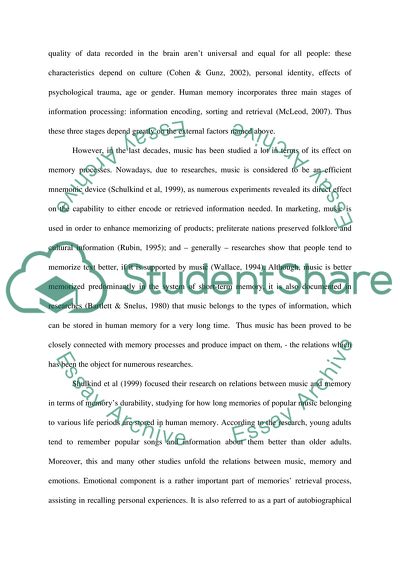Cite this document
(“The Effectiveness of Music as a Mnemonic Device on Recognition Memory Research Proposal”, n.d.)
The Effectiveness of Music as a Mnemonic Device on Recognition Memory Research Proposal. Retrieved from https://studentshare.org/psychology/1669049-pick-a-name-yourself-it-should-have-something-to-do-with-music-and-autobiographical-memory
The Effectiveness of Music as a Mnemonic Device on Recognition Memory Research Proposal. Retrieved from https://studentshare.org/psychology/1669049-pick-a-name-yourself-it-should-have-something-to-do-with-music-and-autobiographical-memory
(The Effectiveness of Music As a Mnemonic Device on Recognition Memory Research Proposal)
The Effectiveness of Music As a Mnemonic Device on Recognition Memory Research Proposal. https://studentshare.org/psychology/1669049-pick-a-name-yourself-it-should-have-something-to-do-with-music-and-autobiographical-memory.
The Effectiveness of Music As a Mnemonic Device on Recognition Memory Research Proposal. https://studentshare.org/psychology/1669049-pick-a-name-yourself-it-should-have-something-to-do-with-music-and-autobiographical-memory.
“The Effectiveness of Music As a Mnemonic Device on Recognition Memory Research Proposal”, n.d. https://studentshare.org/psychology/1669049-pick-a-name-yourself-it-should-have-something-to-do-with-music-and-autobiographical-memory.


